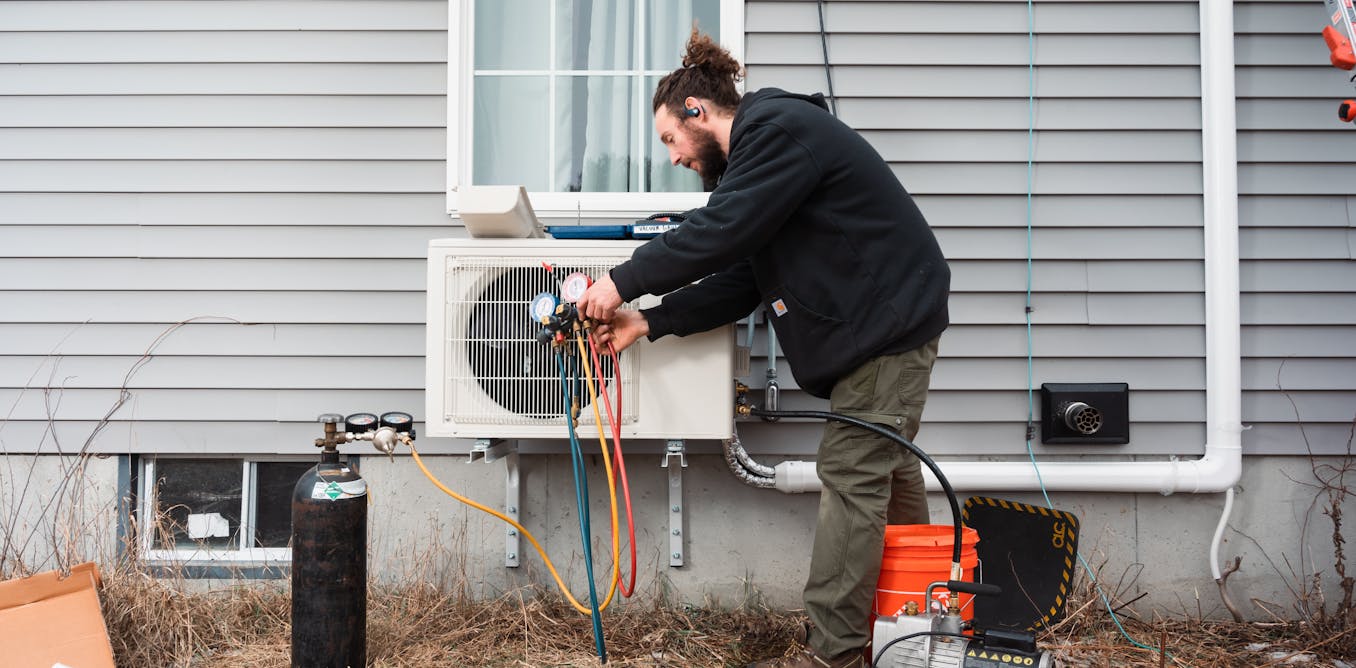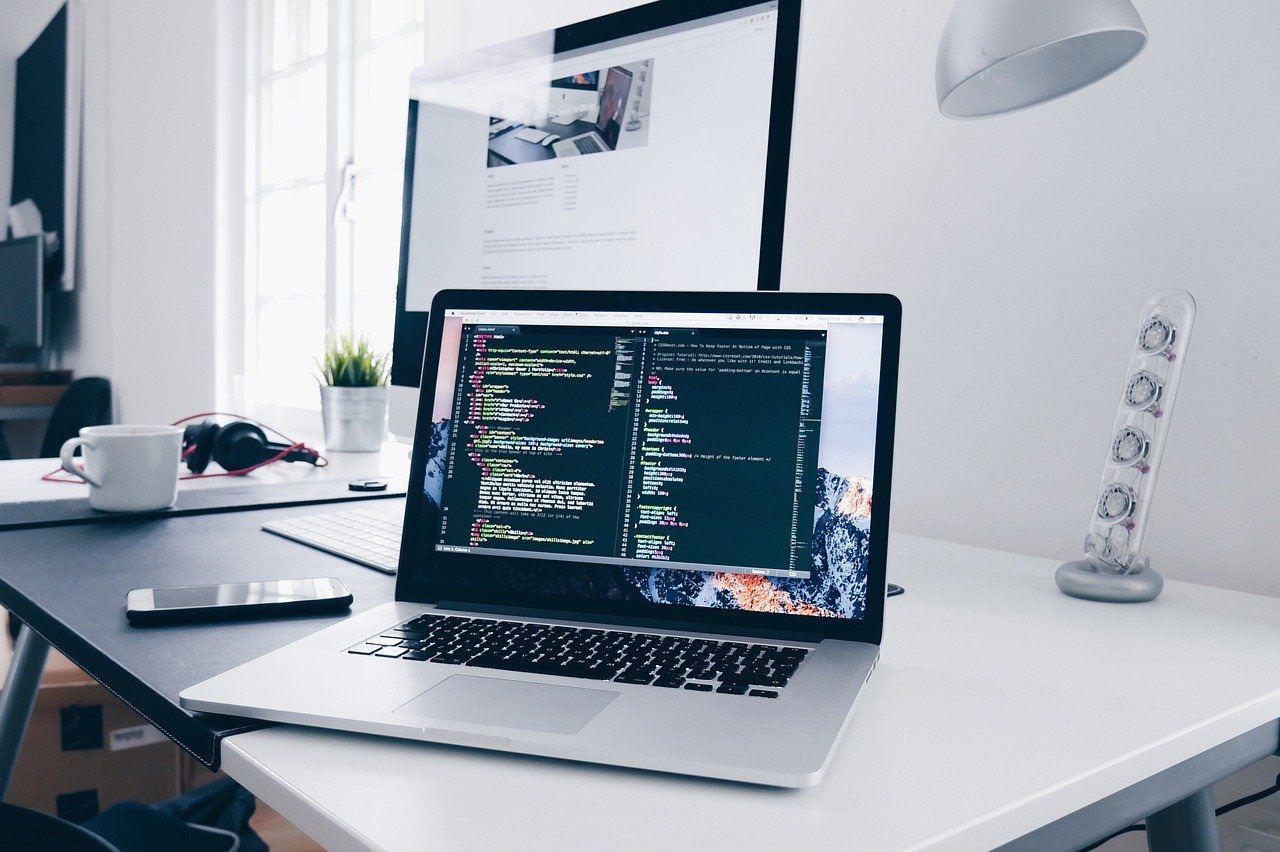Business
Scott Dylan on the Future of AI in Business: A Roadmap
Imagine a future where AI simplifies design and development. Saving time is guaranteed with technologies like Figma’s AI, changing how businesses create and work together. Today, AI is set to revolutionise our work and its essence. Scott Dylan, from Inc & Co, leads the way with his vision for AI in business transformations.
Efficiency is now crucial for staying ahead, and Spotify’s engineers rely on AI for design innovations. AI is expanding into various fields, shaping the future of work around technology integration. Scott Dylan‘s strategy for businesses involves using AI to unlock new potential.
Dylan’s advice provides clear steps for using AI to advance companies. He sees AI’s role in improving areas like waste reduction and supporting local initiatives. Dylan emphasises the need for ethical AI use to promote environmental sustainability. This approach could help achieve a more sustainable future through Business strategies.
With Dylan guiding, AI can be more than an innovation tool; it becomes a partner for a better future. His roadmap is vital for leaders and entrepreneurs navigating technology to make their operations resilient. In a changing world, AI is central to the ongoing evolution of business practices.
Exploring the Impact of AI on Modern Business with Scott Dylan
Artificial intelligence (AI) has changed the game for businesses worldwide, making leaders think in new ways. Scott Dylan, known for his innovative business ideas, has been key in showing how AI boosts efficiency and competitiveness across sectors. His knowledge highlights AI’s role in pushing companies forward, helping them succeed.
Scott has looked closely at AI’s role in business, using real examples. In retail, AI helps predict what customers want, making marketing and stock control better. In manufacturing, it makes making things faster and cuts down on stops, improving what they make. This shows how AI is helping businesses become more innovative.
He also talks about using AI to keep getting better and faster. Scott urges companies to see AI as a main part of growing. With AI, businesses can grow faster and handle changes better, staying strong and prepared.
Scott’s work in coaching and leading big changes shows his dedication to using AI to improve business. His success stories with Inc & Co prove how vital AI is in today’s business world. This underlines AI’s key role in shaping business strategies.
The Integration of AI in Waste Management: A Case Study
In the United Kingdom, the Greater Manchester Combined Authority renewed its waste management contracts with SUEZ Recycling and Recovery UK. This move paves the way for AI in environmental sustainability. Until 2034, the partnership aims to use AI to better collection routes, sort recyclables, and lower landfill usage. This reduces our environmental impact.
At the heart of this project is the Renew Hub, which uses advanced AI to recycle waste more effectively. The hub aims for a circular economy, where waste is reused, not just thrown away. This contributes to our sustainability goals. This approach is part of a larger trend where cities use AI to boost waste management and set new sustainable development standards.
The collaboration between Greater Manchester and SUEZ shows how AI can automate waste sorting and recycling. This used to need a lot of manual work and often mistakes happened. With AI, we see better sorting and fewer mistakes, leading to better recycling. This case not only shows AI’s operational benefits but also its role in making waste management more sustainable by cutting down waste.
This story is key for local authorities and policy makers interested in AI for waste management. The insights from Greater Manchester offer a clear example of how AI can make waste systems better, sustainable, and cost-effective. Therefore, Greater Manchester’s example could inspire other areas to improve their environmental strategies with new technology.
AI Driving Innovations in Community Projects and Environmental Conservation
In our modern world, AI is reshaping the future of community efforts and green conservation. Projects like the Recycling for Greater Manchester Community Fund show how it’s done. They use AI to make sure money goes to projects that handle waste smartly. This changes waste into useful products and helps communities be sustainable.
AI is also changing how we protect the environment, with groups like Recycling Lives leading the way. They use AI to help people learn new skills, aiming to cut down on homelessness and crime. These smart systems pinpoint what different people need. This means they can offer the right kind of help that really makes a difference in people’s lives.
AI and going green work together on a big scale too, aiming to lessen harm to the planet. For example, new tech makes using resources better and recycling more open. AI supports moving towards a circular economy. This smart approach keeps our planet balanced and makes recycling industries stronger economically.
AI’s role in these areas shows it’s a key tool for sustainable progress. By leveraging AI, communities can make a real impact. They move closer to creating a world that’s more sustainable and cares for the environment.
Advancing Circular Economy Through AI in Waste Management Partnerships
The partnership between Greater Manchester and SUEZ shows how AI can boost circular economy efforts in waste management. By using AI, they aim to better use resources, improve recycling, and lessen their impact on the environment. This leads to a Healthier planet. They also focus on creating green jobs and protecting nature, offering apprenticeships in eco-friendly roles. These actions not only make waste management better but also help the entire region become more eco-friendly.
Using AI in waste management helps increase the circular economy. This means less waste and more efficient use of resources. The partnership has made waste sites better for wildlife while still allowing Business activities. This shows how companies and public bodies can work together for economic and environmental benefits. It supports local wildlife and the community’s welfare too.
In Greater Manchester, this AI partnership has led to better sorting and recycling. This means less trash goes to landfills and carbon emissions are lower. By including AI, waste management is now more efficient and can adapt to environmental and market changes. This proves how important AI is for a better circular economy around the world. It shows other partnerships could do the same, leading to a more sustainable future.
AI-Powered Solutions in Business: Figma’s Novel Approach
Figma is changing the game in digital design with its AI tools. They have launched Code Connect to cut down on boring coding work. This helps designers work faster and creates an easier design environment. By turning designs into code with AI, they’re making huge strides in software creation.
Figma cares about how they use AI, making sure it’s responsible. Users can choose not to share their data for AI learning. This shows Figma values privacy and wants to create ethical software. They are leading by example in how businesses should use AI.
With AI, Figma is more than just boosting design techniques. They’re at the forefront of the digital design world, thanks to their smart use of AI and focus on users. Figma is pushing the whole industry forward, making AI in business more innovative and ethical.
Artificial Intelligence Transforming Software Design and Creativity
Software design is being transformed by AI. This change isn’t just improving tools; it’s creating new ways for designers to work. Platforms like Figma use AI to automate tasks and improve designs.
AI in software development brings more dynamic and efficient tools. It makes creating designs easier and more intuitive. This allows for quick changes and better results in a comPetitive market.
AI is making a big impact on software design, adding new tools to the creative process. This change promises even more exciting developments in the future of design and creativity.
Scott Dylan’s Insights on AI and the Future of Work
Scott Dylan discussed how AI will change work in big ways. He sees artificial intelligence shaping many job areas. It will bring efficiency and new ideas by fitting into our daily jobs.
He believes AI will help, not replace, workers. This means people will do higher-level work. It’s about using tech to boost human skills and creativity.
Scott Dylan imagines a workplace where AI and people work together. In these spaces, people will focus on bigger challenges. AI will do the regular tasks, pushing us towards better problem-solving.
He predicts a dynamic future, similar to today’s tech giants. They use AI to improve how work is done. Dylan’s vision relies on blending new tech with smart planning.
AI’s Impact on Business Education and Inclusive Job Creation
Artificial Intelligence (AI) is changing business education in big ways. Schools around the world are adding AI to their courses. This helps students get ready for a world where technology is key. They learn to use tech tools for solving business issues. AI is doing more than just making tasks easier; it’s teaching students to think critically and make smart decisions.
AI is also making the job world more open to everyone. It’s being used to make training programs for diverse groups of people. This makes it easier for those often left out to find work. AI is changing how companies hire, making it fairer for all. This helps bring different talents and views together, which is great for sparking new ideas in business.
SUEZ is showing how it’s done by using AI in its training and education programs. They are doing great things with AI to build jobs that are open to more people and to make business education better. By focusing on AI in their events and research, SUEZ is paving new ways for people to learn and work. This shows how new technology can help in teaching and in making jobs more available.
Putting AI into schools and workplaces is creating a new way of operating. It leads to businesses that are not only smarter but also more welcoming to people from all walks of life. With AI growing every day, its impact on education and jobs keeps getting stronger. This opens up more chances for everyone to innovate and be a part of a more inclusive world.
Sustainability and AI: Pioneering a Green Business Future
In the world of green businesses, combining artificial intelligence (AI) with sustainability is groundbreaking. It’s when innovation meets caring for our planet. Scholars like Bidmon & Knab and Boons et al. have dived deep into this mix. They show how business models help sustainability become a part of tech and society. This mix is key to making businesses more eco-friendly and efficient, helping both nature and profits.
Experts like Berggren et al. see AI in green strategies as a game changer. It’s not just new tech; it’s a way for companies to stay ahead in a green future. Meanwhile, Konietzko et al. talk about circular business models, and Blackburn et al. discuss value networks. These ideas all lean towards working together for a sustainable world economy. The European Green Digital Coalition, backed by the European Commission, pushes for digital and green growth together.
The path to being more sustainable varies widely. Authors from Paiola to Alraja highlight the need for research across different industries and company sizes. Yet, they agree on one thing: blending digital tech with green measures is vital. It makes companies work better and come up with new ideas while meeting standards. This blend is clear in smart city projects where AI is key to urban sustainability.
So, the future looks bright and necessary for green Businesses with AI as a driving force. There’s a big chance to innovate, use resources better, and support a circular economy. This way, Businesses can do well today without harming tomorrow’s chances.
-

 Business4h ago
Business4h agoU.S. Antitrust Regulators Seek to Break Up Google, Force Sale of Chrome Browser
-

 Business4h ago
Business4h agoSuccessful White Men Alone Can’t Create America’s Economic Future
-

 Business9h ago
Business9h agoThe Rise of Silent Services
-

 Business20h ago
Business20h agoTim Latimer
-

 Business1d ago
Business1d agoCarbon offsets can help bring energy efficiency to low-income Americans − our Nashville data shows it could be a win for everyone
-

 Business1d ago
Business1d agoWorkplace diversity training programs are everywhere, but their effectiveness varies widely
-

 Business2d ago
Business2d agoFirm bosses urged to make use of Welsh language to revitalise rural economic system
-

 Business2d ago
Business2d agoDonor-advised funds are drawing a lot of assets besides cash – taking a bigger bite out of tax revenue than other kinds of charitable giving





















